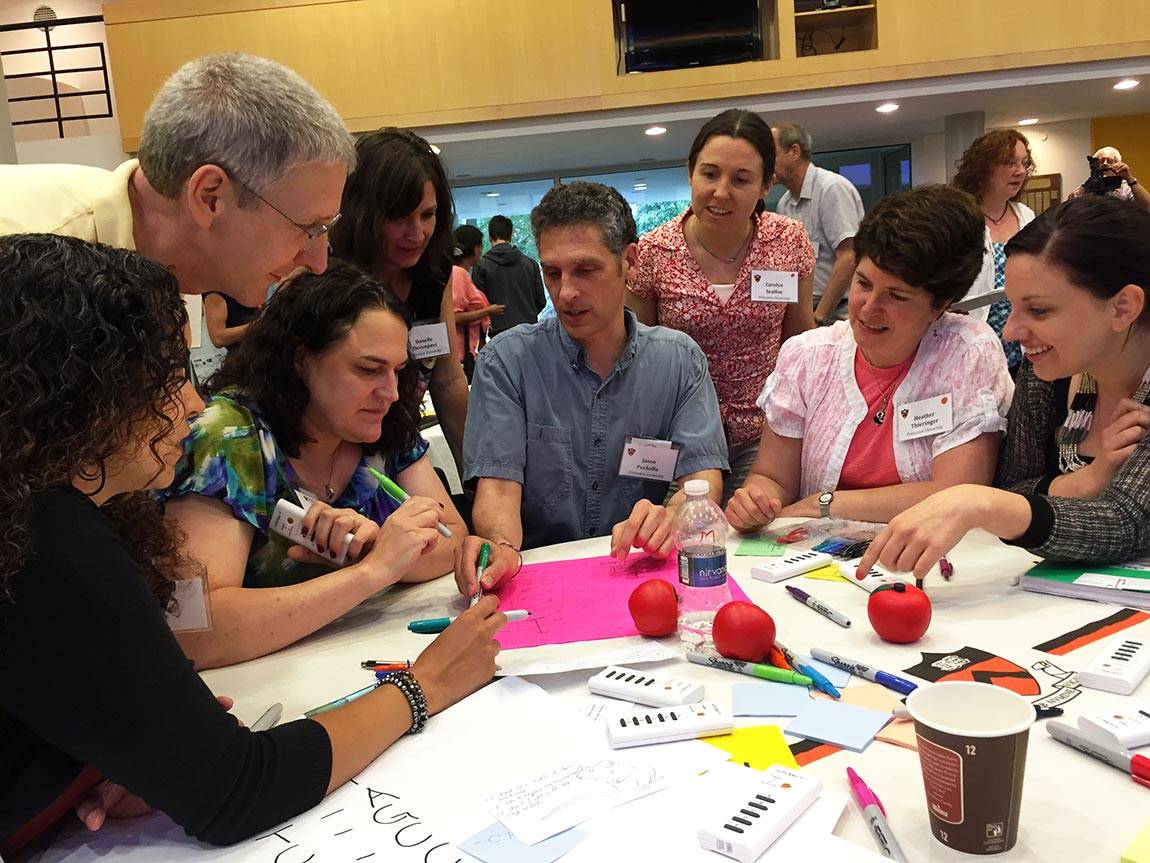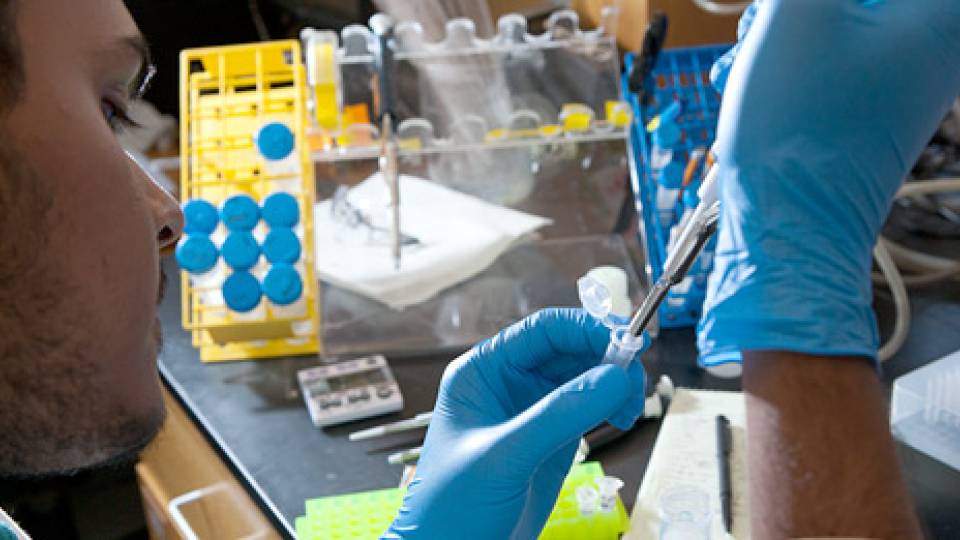From institutions across the Northeast, researchers and science instructors gathered at Princeton University the week of June 14 to explore techniques designed to better engage science students and attract students who are apprehensive about entering a laboratory.
The occasion was the regional session of the 2015 Summer Institutes on Undergraduate Education in Science organized by the National Academies and the Howard Hughes Medical Institute. The objective was to create a learning environment that embraces an experience based on problem solving, participation and interaction between teachers and students.
As the 46 participants — plus 20 facilitators and presenters — in attendance learned and expressed, the teaching process is not static — much like learning, new ideas and challenges to old conceptions can reinvigorate and improve the educational experience for teachers and students. The summer institute encourages a teaching approach based on three themes: active learning, assessment and inclusive teaching.

Researchers and science instructors from institutions across the Northeast gathered at Princeton University the week of June 14 for the 2015 Summer Institutes on Undergraduate Education in Science organized by the National Academies and the Howard Hughes Medical Institute. Of the nearly 70 participants, facilitators and presenters, those from Princeton included, from left to right: Evelyn Laffey, associate director of the Council on Science and Technology (CST); Frederick Hughson, a professor of molecular biology; Rebecca Burdine, an associate professor of molecular biology and a co-director of the summer institute; Danelle Devenport, an assistant professor of molecular biology; Jason Puchalla, a senior professional specialistand lecturer in physics; Carolyn Sealfon, associate director of science education for the CST; Heather Thieringer, a senior lecturer in molecular biology; and Jaclyn Schwalm, assistant director of science education for the CST and a lecturer in molecular biology. (Photo by Jill Feldman, Office of Communications)
Rebecca Burdine, a Princeton associate professor of molecular biology and a co-director of the summer institute, told attendees that creating a more dynamic classroom experience is a constantly evolving process that can be likened to an ongoing experiment.
Burdine explained her recent redesign of a core class for Princeton molecular biology majors, "Cell and Developmental Biology," that replaced multiple-choice questions with short essays, and also asked students to write all they knew about a specific term rather than provide strict definitions. The point was for students to understand what they genuinely know about a topic in relation to other biological principles and concepts, she said.
"Since we really want to send students in the world as scientists, we want them to learn science, not just memorize facts," Burdine said. "We're not doing our jobs if we're sending our student into the world without basic scientific literacy."
Danelle Devenport, a Princeton assistant professor of molecular biology who teaches "Cell and Developmental Biology" with Burdine, attended the institute to learn more about the teaching techniques and to experience their effectiveness for herself: "We're all scientists and we want data," she said.
Devenport and her fellow attendees took part in workshops and activities based on the institute's themes. They then formed groups charged with developing an interactive lesson. After presenting the lesson, they received commentary on its strengths and weaknesses.
One way in which the institute was most effective was by making use of the very techniques that were espoused, Devenport said. "There's very little time spent with people just sitting and listening," she said. "We want students to be as excited about science as we are and this is a great way to do it — by letting them be scientists."
Reinventing a course or curriculum at one's home institution takes time, collaboration and sometimes a lot of convincing. The summer institute is a venue for like-minded educators to trade research, ideas and stories about implementing action, said Ryan Kerney, an assistant professor of biology at Gettysburg College. Institute participants ranged from lecturers to seasoned professors, such as Frederick Hughson, a Princeton professor of molecular biology who received a President's Award for Distinguished Teaching at this year's Commencement.
"The real benefit is to spend a lot of time talking to people who have the same goals and to realize that we're not alone in our struggles as educators," Kerney said.
By hosting this regional institute for the first time, Princeton enhances its brand as an institution that values "teaching as scholarship and the use of evidence-based science teaching methods," said Burdine, who first attended the summer institute in 2013 at Stony Brook University. The model presented at the summer institutes encourages backward course design using Bloom's taxonomy, an education construct used to define and distinguish between different levels of cognitive processes in order to promote more advanced learning objectives.
The summer institutes are partly intended to provide science instructors in higher education with the data and hands-on experience to see the merits of this teaching approach for themselves, Burdine said. Princeton's Council on Science and Technology — which co-hosted the event — and McGraw Center for Teaching and Learning expanded the local reach of the institute by sponsoring a workshop for senior University administrators directly involved with undergraduate education to discuss how practices introduced during the summer institute could be applied at Princeton.
"Towards the end, a lot more people are swayed than at the beginning," Burdine said of the summer institute. "Good teachers are always open to best practices."




